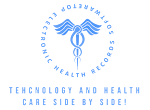HITECH Act, signed by President Obama in 2009, established a network of 62 Regional Extension Centers, or RECs, which are charged with supporting primary care practices to become meaningful users of EHR and EMR health care software and other electronic health information technology. These RECs are staffed by experts and offer direct technical support and advice to individual practices. Each REC is assigned a certain number of primary care physicians who must actively engage in the effort.
Some EHR systems are free. Those designed for private practitioners may be pricier, which makes them unaffordable. But even with this cost, the benefits far outweigh the drawbacks. The costs of an EHR system are often prohibitive to small practices, particularly solo practitioners. The free Practice Fusion cloud-based EHR software was designed with this group in mind, and it generates revenue from advertisements within the program. Some paid EHR/EMR like Acumen EHR software might be costly but never the less, its features and performance speaks volumes.
The AMA Stakeholders Inniative:
The AMA supports the use of open-source EMR and HIT software systems and offers recommendations to CMS on how incentive programs can be improved. The AMA is working with the EHR vendor community and other stakeholders to improve the usability and interoperability of the software, which will improve the patient's experience. The AMA also supports the use of clinical data generated by EHR and HIT systems for research and population health.
Despite all these advantages, the adoption of HIT is still slow. However, large employers and private insurers are providing incentives to motivate physicians to use HIT. In fact, nearly every major health insurance provider offers some form of incentive to their doctors who implement EHR and/or EMR health care software. The programs vary greatly, but many programs focus on encouraging providers to implement the software as soon as possible.
If You are insearch of a good health care EMR/EHR software than try using Meditab for your health care practices so that you can streamline the process.
Health Care Softwares For The Win:
Using EHRs and EMRs for patient health is important. These systems can streamline workflow and secure communications between patients and providers. They can also integrate with payers and other providers, such as imaging facilities. These systems can also help doctors manage their practice more effectively. Additionally, they can help improve patient eligibility for insurance and manage patient records. This is a major benefit for the health insurance industry, and American doctors are increasingly adopting EHR and other health care software to enhance patient outcomes.
Take a look at the largest EHR vendors and see what health care software fuffils your needs.
As the use of EHRs increases, so does the need for privacy and security. The federal government has mandated that EMRs focus on patient data and reporting. The federal government is punishing physicians who fail to do so. Its own requirements are not compatible with those of their patients. The use of EHRs for medical records has become mandatory for every physician. This is good for patients and for the country.

.jpg)